The health effects of mold are very serious, and a mold problem should not be taken lightly. When running a company, employees who get sick are not productive, take time off and if they are sick from a mold infestation, it can become a workman’s comp issue. If your employees are complaining of allergy symptomes such as watery itchy eyes, runny nose, sore throats and coughs, you may want to get your building tested for mold. You can take care of this problem early and prevent illness and keep your employees productive and happy.
People who live or work in buildings that have moisture and are not adequately ventilated are more at risk of illnesses causes by mold. The shear volume of time people spend inside their workplace makes the environment extremely important for health reasons. People with pre-existing conditions such as allergies and asthma are usually the first to experience symptoms of mold exposure. Groups of particular risk are the very young, old or immunocompromised.
By inspecting and testing for mold you can tell if there is an unhealthy level of spores in your building and find out if any allergies you might have are from mold or other allergens.
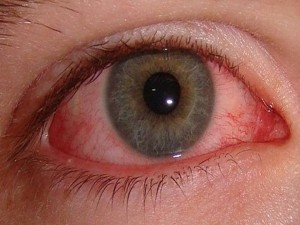
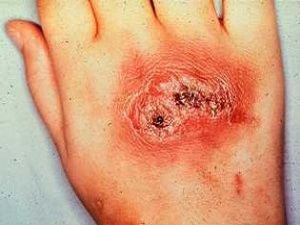
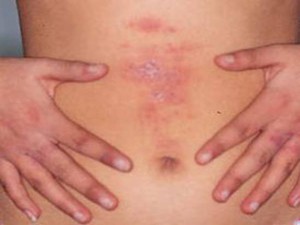

The presence of a mold infestation in any building can cause health effects of mold through the toxicity that builds up in a person’s body.
1. Breathing in the mold spores. Your body can react to inhalation of mold spores by producing mucus manifesting as runny nose, sore throat and cough. Mold spores can take up dormant residence inside your lungs and in times of decreased immunity become active and become a pneumonia infection.
2. Food contamination. Mold can be ingested on food. This can cause diarrhea and abdominal pain.
3. Direct contact. Direct contact with mold is extremely dangerous leading to skin rashes and infections.
If you are exposed to the dangers of mold in any of these ways, it is likely that symptoms will develop and you will experience increased health problems. The symptoms usually start out small, because mold exposure is directly related to severity of illness. But, as the mold growth spreads, the number of mold spores in the building quickly increases, compounding your level of exposure.
If you feel that you or your employees are exposed to mold, call and schedule for testing and a Lab Certified Detailed Report.
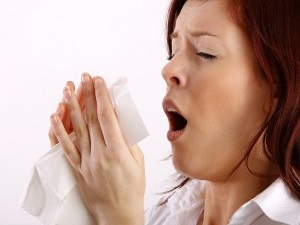
Indoor Allergens are the unseen cause of many allergy symptoms.
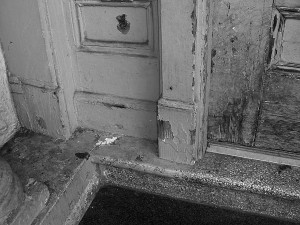
Lead Paint Pealing off of a door and wall, exposing toxins.

A bedbug full after a large meal of blood on human skin.
Mold Air Quality Testing of your facility will include a laboratory certified detailed report, within a few business days. Please contact our office directly for a quote.
Mold is not only a problem in your building, it can grow in the dark and damp places of your vehicles as well.
If you are suffering from persistent allergy symptoms, have all the areas in which you spend a lot of time tested for mold.
Experiencing allergy symptoms such as headaches, nasal congestion, runny nose, sore throat, cough, watery eyes or rashes?
You could be allergic to particles present in your work or home. These particles are called allergens. Allergens are any substance that when contacted can trigger an allergic reaction. Some people have over-reactive immune systems that see allergens as a threat and in attacking these harmless particles create an inflammatory response. It is estimated that up to 35 million Americans suffer from respiratory symptoms caused by allergies.
The most common types of allergens are: mold, dust mites, pollen, animal dander and insects (cockroaches).
Contact us and schedule Allergens testing for individual items or ask us about our Combo kit which includes: cat and dog dander, dust mites and cockroaches. Educate yourself on what you are breathing, so you can have a healthier and more enjoyable life.
The only way to be sure the water you are drinking is safe is by performing professional Water Testing. Of course the water treatment plants test the water but what happens to that water between the plant and getting to our faucet? Water testing is also pertinent if you get your water from a well.
Does your water taste funny or does it have an odor? Deteriorating pipes or lead soldering could be the cause. Broken pipes can also contribute to poor water quality. Your water source could be safe but that doesn’t mean the water coming out of your faucet is safe.
FHA/VA Approved
Chemical, Bacteria, and Lead
New York Times Article on Mold